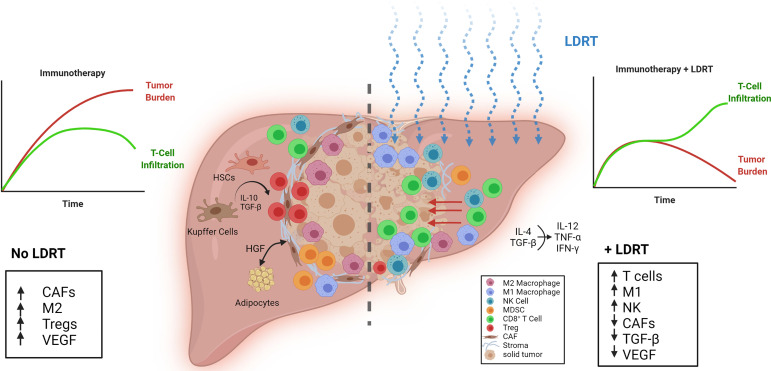Figure 1.
Reprogramming the tumor stroma by LDRT in liver metastases. (Left) The efficacy of immunotherapy is limited by unfavorable conditions in liver metastatic tumors such as a dense stroma, a low ratio of M1-to-M2 macrophages, increased TGF-β, vascular endothelial growth factor (VEGF) and cancer associated fibroblasts (CAFs). Liver resident cells, Kupffer cells, monocytic myeloid-derived suppressor cells (mMDSCs), and hepatic stellate cells (HSCs) promote Treg expansion through IL-10 and TGF-β release. (Right) Effect of low-dose radiotherapy (LDRT) on the immunosuppressive tumor microenvironment. LDRT repolarizes macrophages, decreases CAFs, and reduces TGF-β and VEGF. T cells and NK cells infiltrate the tumor through the disrupted stroma and receive positive stimulation from M1 macrophages.

